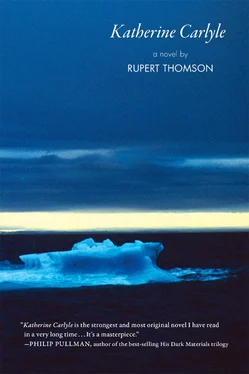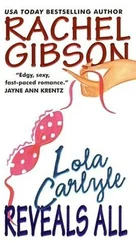I doubt I can wait that long.
He stops at last on a stretch of road that seems utterly unremarkable. This was the only way into an enclave of houses known as Steinstücken, he tells me. The Berlin Wall ran down both sides of the road. He walks to the grass verge and begins to poke about. No trace of the wall remains, but he shows me where it used to be. Here, he says, and here. We move on. Before the wall came down, Steinstücken was a magical place, he says. Though it belonged to West Berlin it was completely surrounded by the DDR. It was like an island, with just one strip of tarmac — a causeway, really — to link it to the rest of the world. His brother, Friedl, rented a house in Steinstücken, and he — Oswald — would often visit. Friedl was twenty years older, more like an uncle than a brother.
“You already told me that,” I say. “So why are we here?”
Once, Oswald says, when he was staying at the house, he was suddenly hoisted onto Friedl’s shoulders and carried outside into the dark. He remembers cheering, and the tilting beams of flashlights, and people wielding sledgehammers, pickaxes, and bits of pipe. That night he found a piece of concrete lying on the ground, among the grown-ups’ feet. He plunges a hand into his pocket and takes out a chunk of gray stuff about the size of a tennis ball. He stares down at it, his eyes distant, dreamy. It seemed really heavy at the time, he says. He was only four.
“That’s it?” I say. “That’s part of the Berlin Wall?”
He nods.
“And this is where it came from?”
“Yes.”
“So you brought me all this way to show me something that isn’t here?”
He hesitates.
“OK,” I say. “That’s great. Can we go now?”
His face widens in disbelief.
“Look, I’m sure this is important to you,” I go on, “but none of it’s much use to me.”
“This isn’t about what’s important to me,” he says. “It’s the past. It’s history . I’m trying to show you something.”
“I don’t care. I’m not interested.”
“You’re not interested ?” He’s staring at me, horrified.
“No, not really.” I look around. “You’re just someone I happened to run into in a supermarket. You talked to me. I did you a favor. That’s it. That’s all.”
“A department store,” he says.
“Sorry?”
“I work in a department store.”
“Whatever.”
“You’re harsh, you know that?”
“Oswald, you’re not listening to me. I don’t have time for this. I’ve got stuff of my own to deal with.”
“How do you know this isn’t part of it?”
This is clever of him and it brings me up short, but only for a second. “I just know.”
“You’re lost, you are. You’re —”
“Fuck you.”
He flinches, then moves away from me, into the road. When he speaks again his voice is so subdued that he could be talking to himself. “If you’re not careful you’ll get hurt.”
Light explodes inside my head, as if I’ve tapped into the S-Bahn’s power lines, and suddenly I’m so close to Oswald that I can’t even take in his whole face. Just a chin, half a mouth. The meager iron filings of his stubble. My eyes feel white hot. It’s a wonder he doesn’t start to smolder.
“You’re an idiot,” I shout, switching to English for the first time all evening. “You’re a fucking fool. Don’t you see anything ?”
A figure looms in a nearby driveway.
“Get lost,” a man’s voice says, “or I’m calling the police.”
Oswald steps in front of me.
“My brother used to live here,” he says. “He used to live in your house.”
A security light clicks on. The man’s face is in shadow.
“Piss off, both of you.”
Oswald glances at the piece of concrete he is holding. His hand tightens round it, then his arm unwinds into the air. There’s a bright jangling noise, and a black star appears in a downstairs window. The man lets out a string of curses and lurches towards us, light from the house silvering one raised fist.
Oswald says, “Run.”
We turn and race along the road, back the way we came. I glance at Oswald but he doesn’t look at me.
“Keep going,” he says.
Somewhere behind us a car starts up.
We run for perhaps a kilometer. My throat burns and I taste blood. Near the station we scale a wall and scramble down a railway embankment. A siren wails. We hide under a bridge, among Gourmet salami wrappers and empty yogurt cartons.
“I think we lost him,” Oswald gasps.
A train flashes past. I feel as if someone stabbed me in the ribs.
Oswald leans over, hands braced on his knees, and spits into the grass. “Do you think he saw us?”
I tell him I don’t know.
The siren fades. I can’t hear any voices, only the low hoarse barking of a dog.
“I can’t believe you did that,” I say.
“I was angry.”
“But your piece of concrete — your special piece of concrete …”
He nods, then looks as if he might be sick.
“Maybe you had it for long enough.” I’m trying to make him feel better.
“I don’t know. Maybe.”
“In any case, it was a great throw.”
Smiling bleakly, he glances at his watch and then stares off down the track. “I think that was the last train.”
/
We have no choice but to walk. Near Wannsee, the hard shoulder almost disappears and trucks slam past, dangerously close. After that, we opt for smaller, more residential streets. Wind in the trees, the far-off rattle of a train. The flicker of a TV in an otherwise lightless house. Once, I hear a couple making love, the woman’s cries louder than the man’s. Oswald speeds up, careful to avoid my eyes.
On a street in Steglitz a new noise seems to detach itself from the silence — a high ethereal humming.
“What’s that?” I say.
Oswald stops and listens.
The sound is coming from behind us. We turn slowly, apprehensively. High above the treetops, at the end of the street, is a spaceship. Lit from the inside, it emits a steady whirring as if powered by a single engine. It has a rounded top and a skirt around the base, like a saucer. A flying saucer.
“It can’t be,” I say, “can it?”
Oswald says no.
But we both keep staring, and the spaceship goes on being a spaceship. What should we do?
Then, by small degrees, its shape begins to alter. I realize it must be turning. As it swings round, it becomes more elongated, and the word SIEMENS appears on the side. This gradual transformation happens with such complacency and confidence that it’s like the punch line to some convoluted joke. I look at Oswald, and we both begin to laugh.
“I thought it was a spaceship,” I say. “I mean, it really looked like one — for a while.”
Oswald’s nodding. “I thought it was aliens. I thought they might transport us to another planet. Do experiments on us.”
“You should have taken photographs —”
“I didn’t think of it. I was too busy being amazed.”
Suddenly we have more energy. We walk faster, keeping to the middle of the street. We seem to know each other better. We talk nonstop. Fifteen minutes later an U-Bahn station appears. Next to the ticket machine is a photo booth, and I suggest we have our picture taken, to mark the occasion.
When the photos drop into the slot, Oswald makes to pocket them, but I grab hold of his arm. I should have them, I tell him. As a souvenir. After all, I’m the tourist. What’s more, it was my idea.
“I paid for them,” he says.
“All right.” I let go of him. “They’re yours.”
My sudden indifference unnerves him. He folds the strip, then tears it in half. “Two for you,” he says, “and two for me.”
Читать дальше












